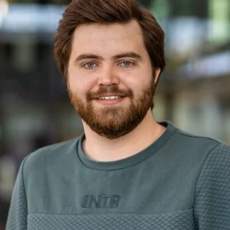Background Information
In computer science and engineering education, students often work with physical setups such as real-time sensing, computation, and control platforms, signal processing devices, and robotics. These hands-on experiences are essential for understanding the practical application of theoretical knowledge. However, access to such setups is typically limited due to hardware availability, scheduling constraints, and the time-intensive nature of manual supervision. As class sizes grow and student expectations shift toward more flexible and personalized learning, these limitations present increasing challenges in providing students with the available resources and assessing their practical understanding.
This project proposes the development of cyber-physical education platforms that integrate physical experiments, virtual environments, and automated assessment tools. The platform will support students throughout different phases of their learning process, from design to modeling and simulation to real-time experimentation and evaluation. It will allow for remote access to physical systems, configurable deployment of various services, the use and development of digital twins, and various forms of interactions across simulation and hardware. Automated feedback and analytics will provide students with continuous insight into their progress and help instructors monitor students' learning in real time. The goal is to offer scalable and modular solutions that support active learning and meaningful assessment in both individual and collaborative settings.
Aim of the Project
The goal of this project is to create and pilot a cyber-physical education platform that enables students to engage with actual systems through a combination of physical setups, virtualization tools and platforms, and integrated e-assessment. The platform is designed to support structured, feedback-rich learning platforms that are accessible both on campus and remotely.
Students will be able to move iteratively between modeling, simulation, and real-time experimentation while receiving useful targeted feedback. This setup encourages reflection, autonomy, and a deeper understanding and application of important concepts and tools of Computer Science and Engineering education. At the same time, it will enable instructors to guide students more effectively by having an insight into their progress and identifying where support is needed.
The project will be implemented in selected courses that emphasize the design and evaluation of cyber-physical systems and their software. By evaluating the platform in diverse educational contexts, the team aims to ensure its modularity and potential for reuse. The long-term objective is to develop an integrated cyber-physical virtualization and e-assessment platform that enhances flexibility, accessibility, and scalability in Computer Science and Engineering education, enabling richer, more adaptive learning experiences while also supporting sustainable teaching practices.
